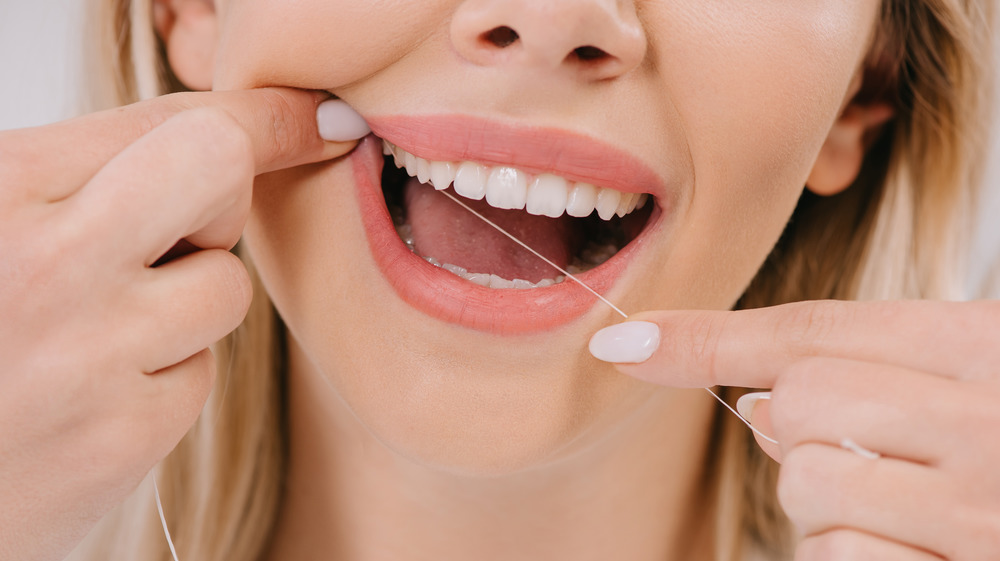What Does It Mean When Your Gums Bleed While Flossing?
You know it's essential to floss along with brushing your teeth to keep your mouth healthy. Most likely, when you visit the dentist, whether you floss regularly or not is among the questions you answer about your oral health practices. According to Healthline, most people should brush their teeth twice daily and floss at least once to maintain good oral hygiene at home.
However, when your gums bleed, you might wonder what it really means. You might also feel tempted to stop flossing altogether, but that's not what you should do, according to Dr. Rakesh Patel, a dentist at Sherwood Dental. In a blog post, he explained there are several reasons why you might experience bleeding when you floss. While it could be a sign of gum disease, gingivitis, there are other possibilities. Additional reasons your gums may bleed when you floss include a poor crown or filling causing irritation, inadequate brushing or flossing technique, tartar, a recent cleaning that removed lots of buildup, or failure to get your teeth cleaned regularly.
While seeing blood in your mouth might feel alarming and bothersome, you can take steps to ensure that it stops happening.
Here's how to stop your gums from bleeding when you floss
When your gums bleed during flossing, there are several steps to take to help improve the situation. While dentists typically recommend flossing once a day, if you notice blood when you do it, Dr. Patel suggests flossing after every meal for three to ten days. "The bleeding will go away with enough proper flossing. Unless there is a systemic problem or actual physical damage to the gum tissue, keep flossing." However, if you near the seven-day mark and the bleeding continues, you should contact your dentist to ensure you don't have any underlying issues.
Rinsing your mouth with hydrogen peroxide might also help improve your gum irritation (via Healthline). A study (via PubMed) found that the group that regularly rinsed with a mouthwash containing fluorinated hydrogen peroxide experienced less gum inflammation, which could result in less bleeding while flossing.
There are other steps to take, like using a soft-bristled toothbrush to brush your teeth, making sure you gently brush your gums each time you clean your teeth. If traditional dental floss doesn't work well for you, you can try a WaterPik or floss picks to clean your gums and between your teeth.

